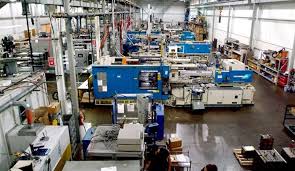By Atoyebi Nike
Nigeria’s industrial sector is increasingly shifting toward homegrown solutions as the fallout from the naira’s sharp devaluation and a persistent shortage of foreign exchange reshapes supply chains nationwide.
A report published by the Financial Times on Sunday revealed that more companies are abandoning heavy reliance on imported raw materials, turning instead to local alternatives to cut costs and reduce exposure to the volatile foreign exchange market.
The change comes after the Central Bank of Nigeria floated the naira last year, a move under President Bola Tinubu’s economic reform drive aimed at boosting growth and luring investors. While the policy was designed to stabilize the economy, it triggered unprecedented swings in the currency, leaving manufacturers struggling to source dollars. The manufacturing sector, which contributes roughly nine per cent to Nigeria’s GDP, was hit particularly hard, with the Manufacturers Association of Nigeria (MAN) reporting that nearly 800 firms shut down operations in 2024 due to rising costs and limited access to foreign exchange.
Global companies including Procter & Gamble, Unilever, GlaxoSmithKline, PZ Cussons, Bayer, and Sanofi have scaled back operations, citing Nigeria’s tough business climate. Others, like paint producer Chemical and Allied Products (CAP), chose to adapt by investing in local sourcing.
CAP’s Chief Supply Officer, Lekan Aluko, recalled that in early 2024, “it was the worst period I have ever witnessed… We would give a purchase order, and within minutes it was rejected because FX prices were so unstable.”
In response, CAP’s management slashed dependence on imports. Chief Executive Bolarin Okunowo explained that local sourcing became a necessity: “In an environment where FX is so volatile, it was a nudge to us as costs were rising and the naira was depreciating a lot.”
CAP now sources 90 per cent of its calcium carbonate needs, essential for paint manufacturing, domestically, saving nearly 60 per cent in costs over the last ten months. The company estimates that without this shift, it would have raised prices by another 50 per cent.
Industry-wide data supports this transition. MAN reported that the share of local raw material use in manufacturing rose to 57.1 per cent in 2024, up from 52 per cent the previous year.
Economist Dumebi Oluwole of Lagos-based Stears noted, “Most manufacturers are becoming more innovative with how they procure their raw materials, how they process those materials, and how they distribute them. We have seen an increased use of collaboration across supply chains.”
For some companies, however, local options are limited. Glass bottle manufacturer Beta Glass, for instance, requires soda ash a material not produced in Nigeria. To cope, it works with overseas suppliers who import the chemical and issue invoices in naira, shielding the company from direct forex exposure. “Using scarce dollars to buy raw materials felt like working for the banks,” said Chief Executive Alex Gendis, pointing to high lending rates of over 25 per cent.
Challenges remain. Local suppliers often struggle with capacity, while poor power infrastructure and unreliable road networks add to production costs. Regulatory uncertainty also weighs heavily on businesses, although a new tax law signed by President Tinubu is expected to ease some of these hurdles from next year.
Despite the difficulties, executives believe the shift toward domestic sourcing is paying off. With the naira showing signs of stabilization since last year’s turbulence, optimism is creeping back into the sector. “Business confidence has been going up in the measures that we look at, and that shows us that things are trending in the right direction,” Gendis said.
